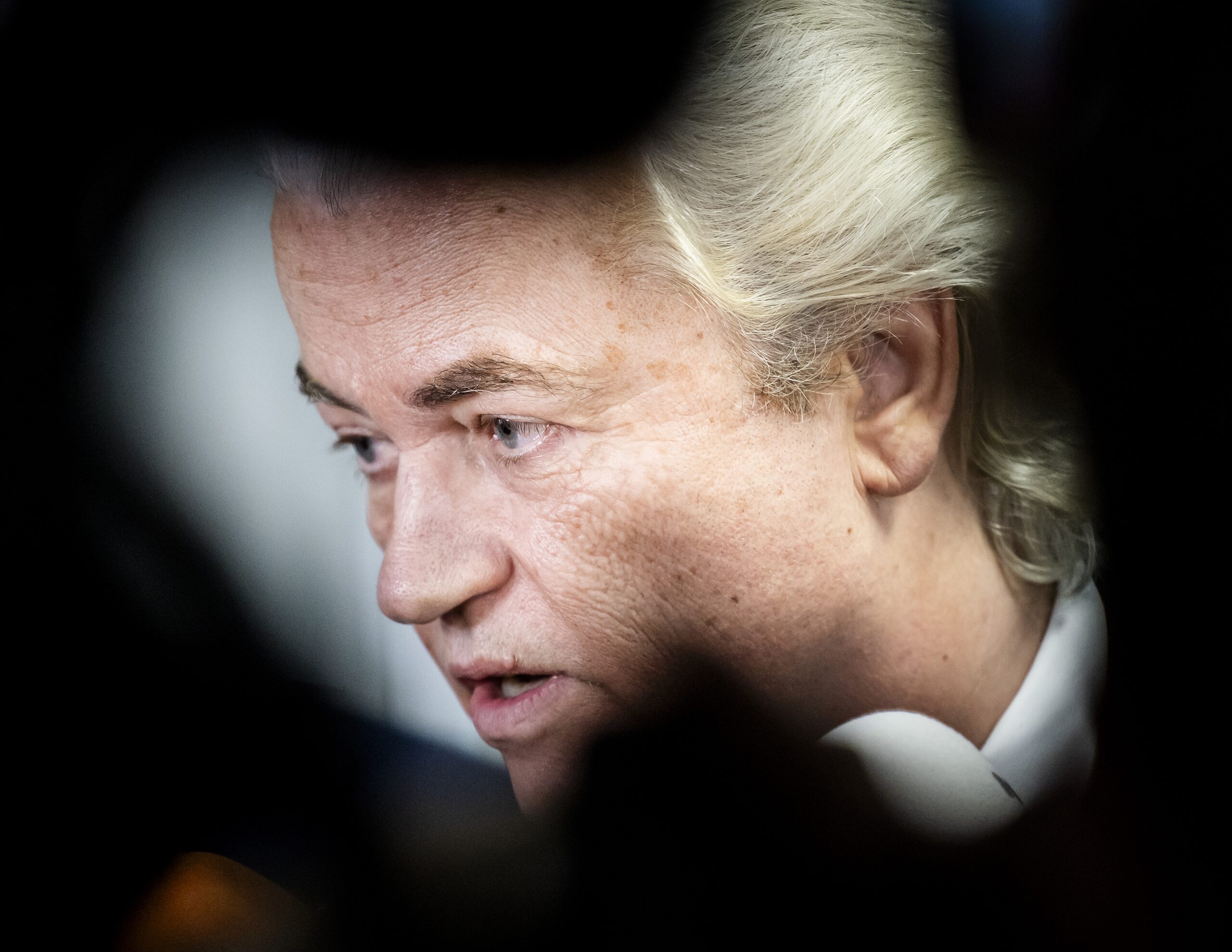Geert Wilders was the boy who cried wolf once too often.
Since taking office last July, the Dutch government has been haunted by the knowledge that the largest party in the four-way right-wing coalition was also the least stable.
The PVV is a political party like no other. It has no members other than its founder, no conferences and no committee structure to choose election candidates or write manifestos.
All policy decisions revolve around the caprices of one man, Geert Wilders, whose previous involvement in government, the confidence and supply deal that underpinned Mark Rutte’s first cabinet, was torpedoed after 18 months when he refused to sign off a package of cost-cutting measures, triggering new elections.
Both Wilders and his coalition partners knew he could bring down the government at a stroke. As a result, Dick Schoof’s cabinet was hampered from the start by distrust and infighting as the leader of the largest party heckled from the sidelines, clashing with ministers on issues from Ukraine to Gaza while repeatedly escalating his demands for more stringent asylum rules.
“Spreading law” controversy
Wilders first threatened to pull the plug before the cabinet had even been formed, two months after the November 2023 election, when the right-wing liberal VVD was instrumental in passing the so-called “spreading law” to ease overcrowding in the asylum accommodation system.
The coalition parties, including the VVD, had promised to abolish the law, which allowed the government to force local authorities to house minimum numbers of refugees, so relieving pressure on the reception centres in Ter Apel and Budel.
But the VVD’s senate group defied the party leadership, prompting Wilders to declare that “we have a serious problem” and threaten to break up the coalition talks unless the issue was resolved.
The parties agreed to repeal the spreading law as part of a package of measures that Wilders championed as “the strictest asylum policy ever” when the outline coalition agreement was published last May.
It also included plans to abolish permanent residency, send refugees back to their country of origin sooner if conditions improved, limit family reunifications and restrict access to legal aid.
Asylum crisis
But to Wilders’ aggravation, the government had to drop its plans to declare an “asylum crisis”, which would have allowed it to bring in the plans using emergency powers rather than steering legislation through parliament, and suspend EU refugee quotas.
Coalition partner NSC, which was elected on a platform of making the government more accountable to parliament, said the minister appointed by Wilders to steer through the plans, Marjolein Faber, had failed to make the case for bypassing the normal legislative procedure.
Wilders warned that “the cabinet has a problem” and threatened to withdraw the PVV’s support, warning NSC, not for the first time, that it was “playing with fire”.
He backed down after the parties agreed an additional package of measures in October, including a two-tier asylum system, ending the obligation for local councils to house refugees and investigating whether parts of Syria could be classed as “safe”.
Threats wore thin
But in February Wilders again raised the prospect of a break when the Council of State made mincemeat of Faber’s draft law on asylum.
It said there were no indications the law would have the desired effect of bringing down refugee numbers and would add to the workload of the agencies charged with implementing them, such as the immigration service IND.
This time the other parties were openly irritated by Wilders’ brinkmanship – VVD leader Dilan Yesilgöz said the repeated threats were “starting to wear thin” – but they complied with his wish to rush the laws through parliament, despite the reservations of the Council of State and opposition MPs.
But by now the tide had started to turn against Wilders. Immigration was no longer the number one issue: since the re-election of Donald Trump as US president, defence and global security, and the economic turbulence caused by his haphazard tariffs regime, dominated the agenda.
Poll ratings decline
The opinion polls also reflected a change in mood and growing frustration at the cabinet’s failure to make progress. The PVV, which won 37 seats at the election and at one point was projected to win one-third of the 150 seats, had been reeled in by both its coalition partner, the VVD, and its bitter rival, GroenLinks-PvdA.
But the biggest winners were the centre-right Christian Democrats (CDA), reduced to a rump of five seats in the last election but now projected to win around three times as many.
The prospect of new elections was no longer a trump card for Wilders. But with the electoral momentum sliding away from him, he had to do something.
Ultimatum
And so, last Monday, he tried to wrest back the advantage at an impromptu press conference in which he called for yet another package of even more repressive measures on immigration, naturalisation and asylum.
This time the other parties gave a lukewarm response to Wilders’ threat. Perhaps in an attempt to call their bluff, he followed up with an ultimatum: either sign up explicitly to six of the 10 points, or the PVV would quit.
But instead of buckling to Wilders’ pressure, the other three leaders put the ball back in Faber’s court. They had already agreed to support the policies, they explained: the responsibility for enacting them was not with them, but with the PVV’s own minister.
In the original fable by Aesop, the boy cries wolf so many times that the people eventually ignore his threats, until one day a real wolf appears and consumes him.
Wilders thought that the fear of another election would force his coalition partners’ hand, but now he will have to face the voters as the man who single-handedly wrecked his own promise of the “strictest asylum policy ever”.
